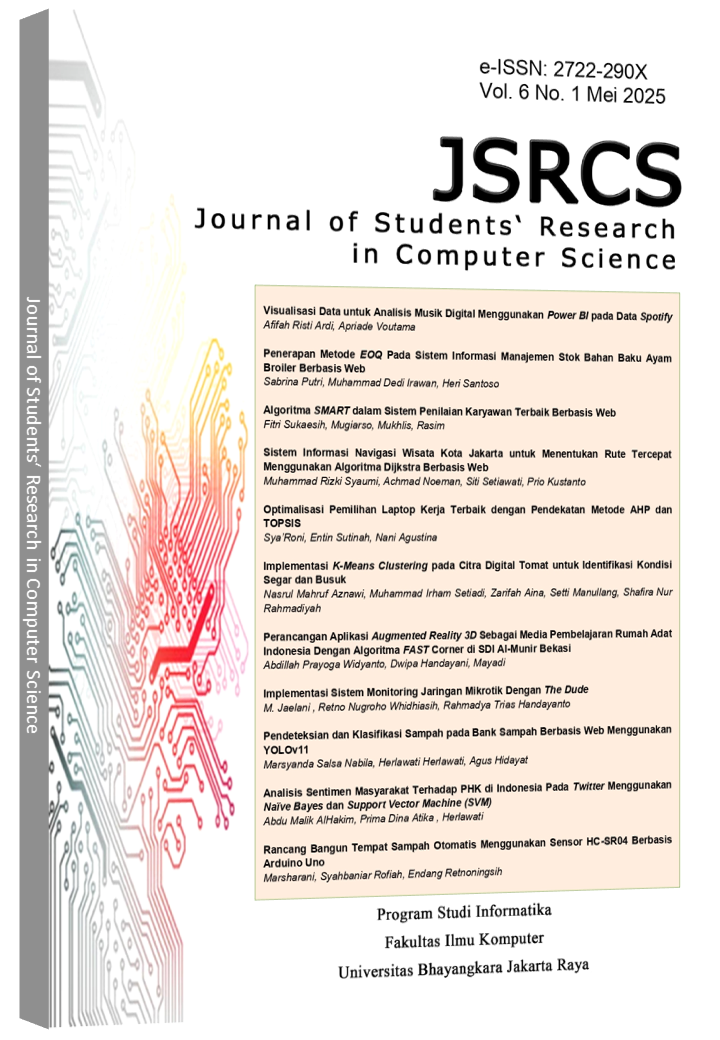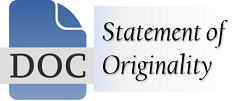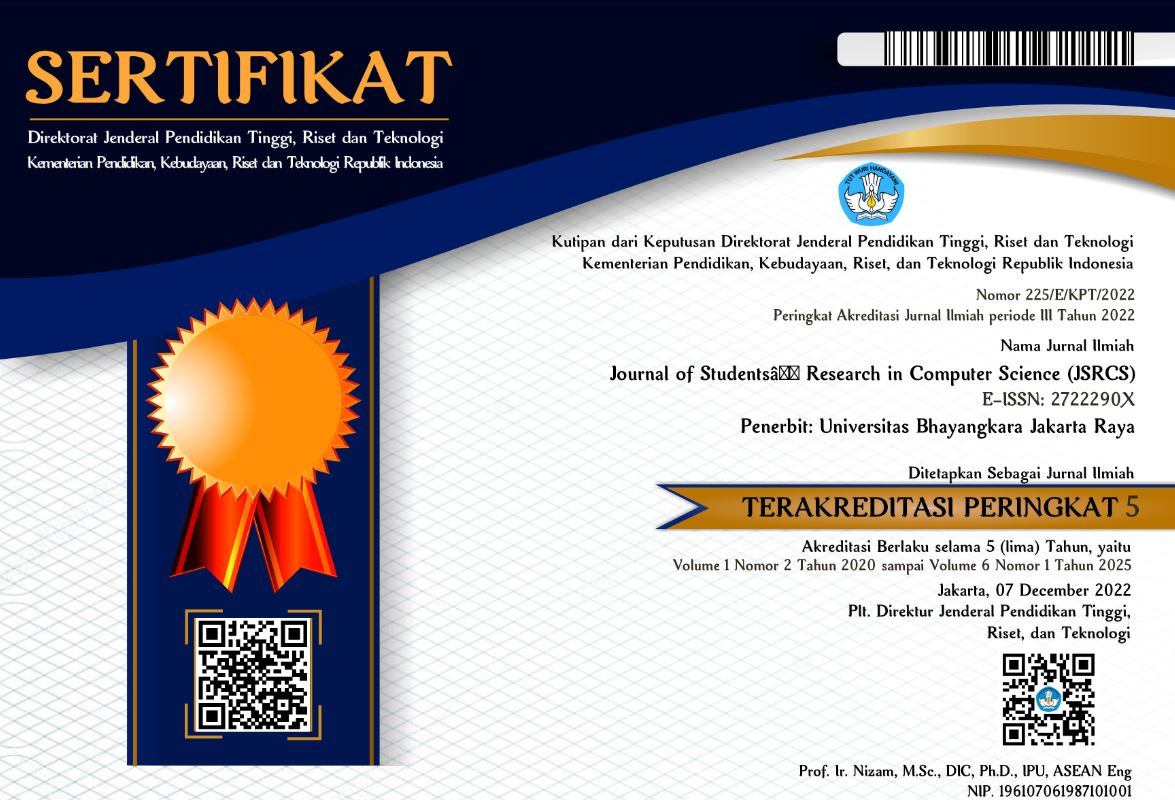Analisis Sentimen Masyarakat Terhadap PHK di Indonesia Pada Twitter Menggunakan Naïve Bayes dan Support Vector Machine (SVM)
DOI:
https://doi.org/10.31599/96sfw544Keywords:
Naïve Bayes, Sentiment, Support Vector Machine (SVM), TwitterAbstract
The phenomenon of layoffs in Indonesia has led to various public opinions, especially on social media. This research aims to analyze public sentiment on the layoff issue using data from Twitter, and compare the performance of two text classification algorithms, namely Naïve Bayes and Support Vector Machine. The Knowledge Discovery in Databases approach is used as the research framework, which includes the stages of data selection, text cleaning, transformation, classification, and evaluation. A total of 3,458 tweets were collected and processed through the pre-processing stage, then classified into positive and negative sentiments. Performance assessment was conducted with three scenarios of training and test data sharing: 80:20, 70:30, and 90:10. The results showed that Support Vector Machine gave the highest accuracy of 84.93% in the 90:10 scenario, compared to Naïve Bayes with 82.61% accuracy in the same scenario. Visualization through wordcloud was also used to strengthen the interpretation of dominant words in public opinion. The findings show that classification algorithms can be utilized to understand public perceptions of employment issues and support social data-based decision-making. This research can be further developed by expanding data coverage and evaluating more complex methods to improve classification accuracy.












_-_Copy1.jpg)

